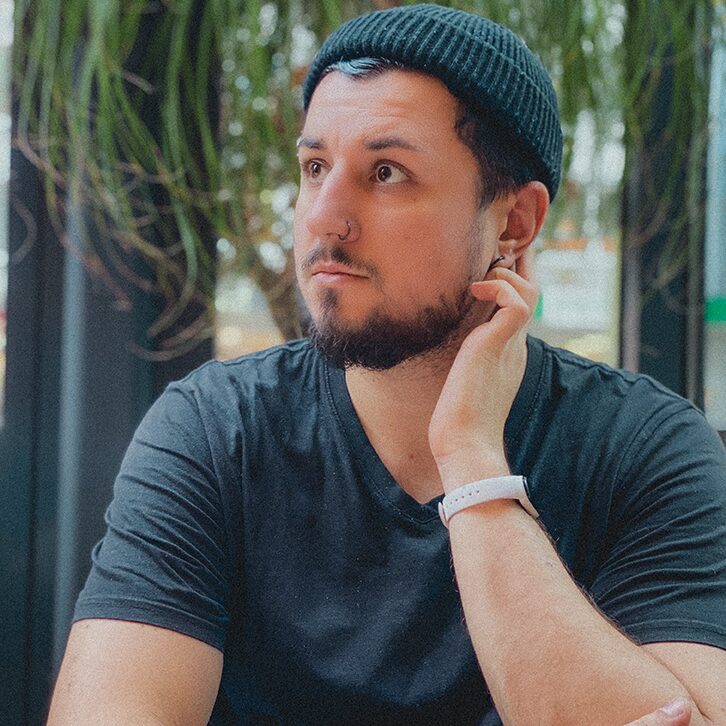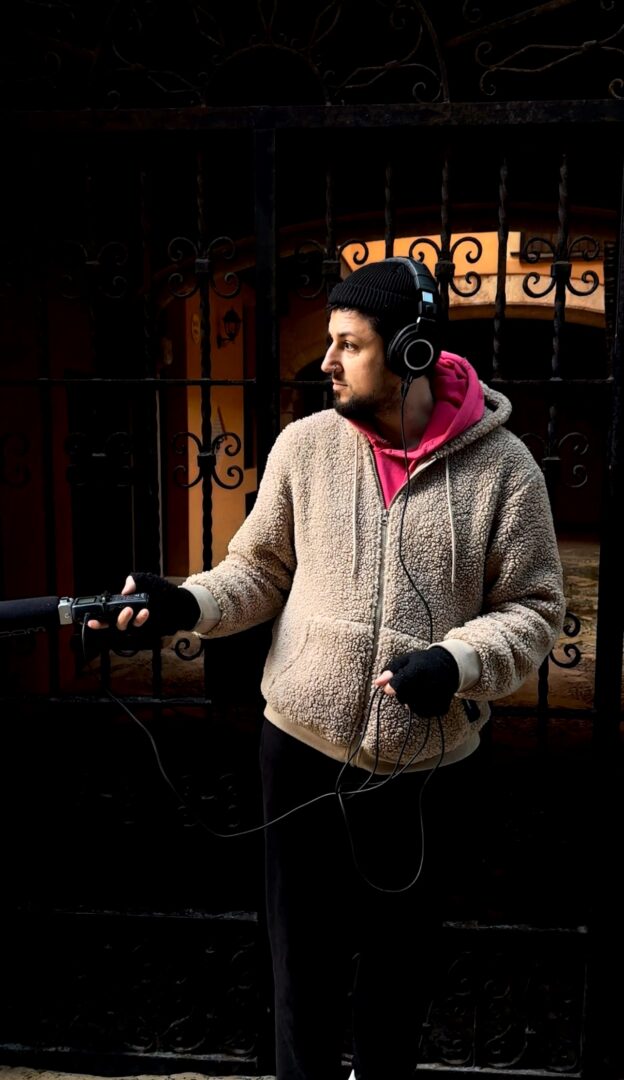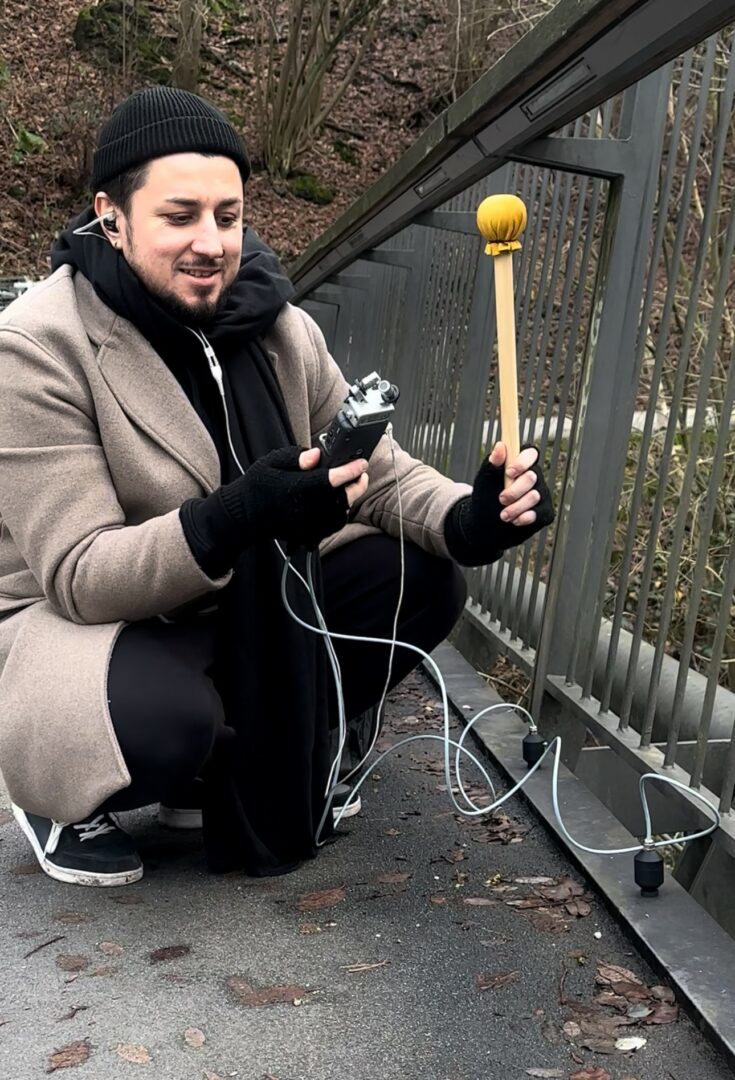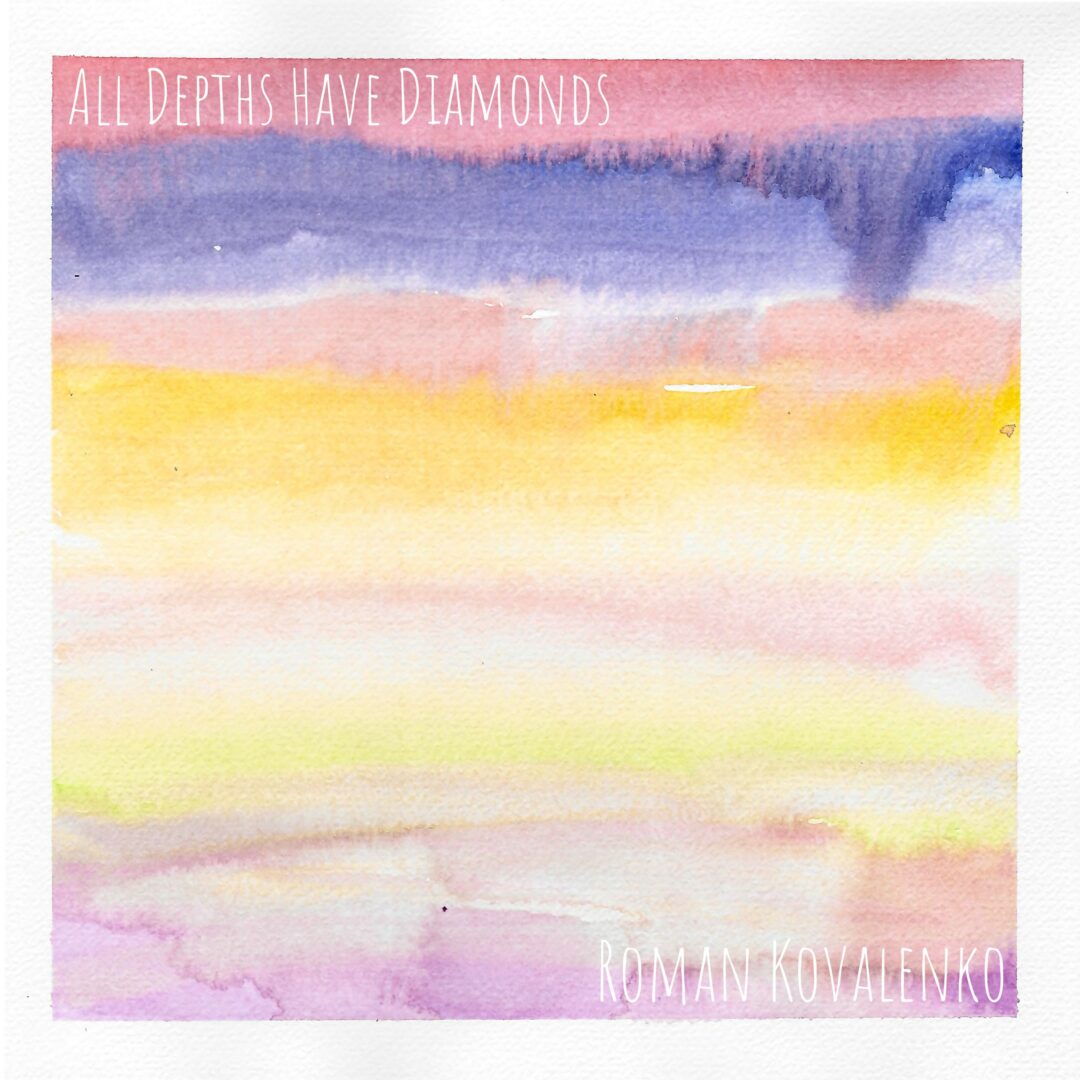We caught up with the brilliant and insightful Roman Kovalenko a few weeks ago and have shared our conversation below.
Hi Roman, thank you so much for opening up with us about some important, but sometimes personal topics. One that really matters to us is overcoming Imposter Syndrome because we’ve seen how so many people are held back in life because of this and so we’d really appreciate hearing about how you overcame Imposter Syndrome.
When I was growing up, I never had the chance to attend a music or art school. Of course, we had some lessons at school, but in the post-Soviet country where I grew up, you couldn’t really rely on them.
When I was 14, I became fascinated by art—especially painting and music—and started looking for ways to learn and for people I could learn from. I found a private art studio and a guitar teacher, and that’s how my journey began.
Learning something new is exciting until you reach an intermediate level. At that point, motivation alone isn’t enough—you need to work hard and stay consistent. Getting past that “medium level” is a long and difficult process. Even harder is shifting your mindset from an amateur’s to a professional’s. That can take years.
After school, I entered a college of arts. I managed to get in after only two years of private study, but during my first years there, I felt incomplete and weak compared to others. By the end of my education, though, I won first place in a national academic drawing contest.
Even after that, I struggled with self-esteem when working in the game industry as a concept artist. The way I’ve learned to overcome this feeling is through steady practice, careful analysis, and making improvements based on my previous work. Feedback from others can also play a valuable role.
Working on self-esteem is essential. The healthiest way to do this is by building positive daily habits that support both your psychological and physical well-being. Be honest with yourself, and be patient on this rocky road. Work on your skills every day—start small with just one hour, and once you feel comfortable, gradually increase the time. This habit won’t destroy imposter syndrome overnight, but it will erode it over time.
And finally—have fun with what you do. Fun is the fuel for achievement.

Let’s take a small detour – maybe you can share a bit about yourself before we dive back into some of the other questions we had for you?
My name is Roman. I am a music composer and artist. I create music and sound effects for video games, commercials, and produce songs for other artists.
As a child, I didn’t have a proper musical or art education, so I had to find my own ways to learn all the necessary skills. I graduated from a college of arts as a painter, then worked in the game industry as a concept artist before entering a music college. At first, I didn’t have enough knowledge or skills, so the only specialization open to me was singing. After a few years, I managed to switch to a Music Theory specialization and learned from an excellent teacher and composer—until he passed away. I never finished that program.
After a long break, I enrolled in Jazz Piano, but I had to leave due to relocating. Finally, after 15 years in the game industry as a composer and sound designer, I earned my Bachelor’s degree in Audio and Music Production.
Over the years, I have worked with many different game companies, creating music and sound for a wide variety of styles and genres. The most exciting part for me is building musical worlds that align perfectly with the game’s concept. Every detail matters—the storyline, visual style, genre, and overall concept of the game all influence the music and sound design.
Right now, I’m working on several projects with beautiful concepts that require a creative approach balanced with game design needs. For example, in two recent soundtracks, I used the Hang instrument to create a Zen atmosphere, because the game mechanics were built around meditative and calming ideas. It’s fascinating how one instrument in an arrangement can completely change the tone of an entire game.
I also work on my personal music projects, which are more challenging to complete due to limited time and energy after my main work. Still, I hope to finish a few ideas in the coming months. Side projects are hard to maintain because they don’t provide immediate rewards—but the potential is there, and they deserve to be brought to life.

Looking back, what do you think were the three qualities, skills, or areas of knowledge that were most impactful in your journey? What advice do you have for folks who are early in their journey in terms of how they can best develop or improve on these?
The three most important qualities are consistency, persistence, and the ability to think critically.
Learning how to produce music—or to play any musical instrument—requires both consistency and perseverance. It’s important to build a strong foundation first, and only then add the “beautiful façade.” Only daily work on the same skills will bring real results.
When I was studying Music Theory, I was interested in everything at once, and it actually made my life harder. Curiosity is valuable, but it carries the risk of spreading your focus too thin. Every good pianist works on exercises every day, even when there are performances. This keeps them sharp. My advice: focus, and be patient.
Persistence means committing to work on your skills every day, no matter what. It’s hard work, and there will be both good days and bad days—but those should never affect your routine. In fact, the “boring” work is often the most important. Be prepared to do a lot of that boring work alongside the fun, creative parts.
Critical thinking is essential for growth. Nothing is ever perfect, and the path toward perfection is endless. To progress, you need critical thinking and self-analysis. For example, imagine you want to learn the bebop scale. First, you learn its structure, then how to play it. After a week of practice, you realize you can’t use it effectively in real music. At that point, you need to adjust your approach—maybe by creating exercises for common chord changes, transcribing jazz standards, analyzing sheet music, and trying the scale in different songs.
This process is crucial, and nobody can do it for you. Don’t be afraid to make mistakes—each mistake is a step toward improvement. The more mistakes you make, the more opportunities you have to grow.

How can folks who want to work with you connect?
I’m open to collaborations with artists and musicians with a jazz, electronic, or hip-hop background. I have experience working with various musicians and songwriters, including producing an album for a singer-songwriter.
I would be glad to collaborate not only with musicians, but also with visual artists, directors, film-makers.
You can write me an email: romanwav (at) gmail (dot) com
Contact Info:
- Website: https://romanwave.com
- Instagram: http://instagram.com/romanwave
- Linkedin: https://www.linkedin.com/in/rkcomposer/
- Youtube: https://www.youtube.com/@RomanWave
- Other: https://album.link/i/1549882434


so if you or someone you know deserves recognition please let us know here.




